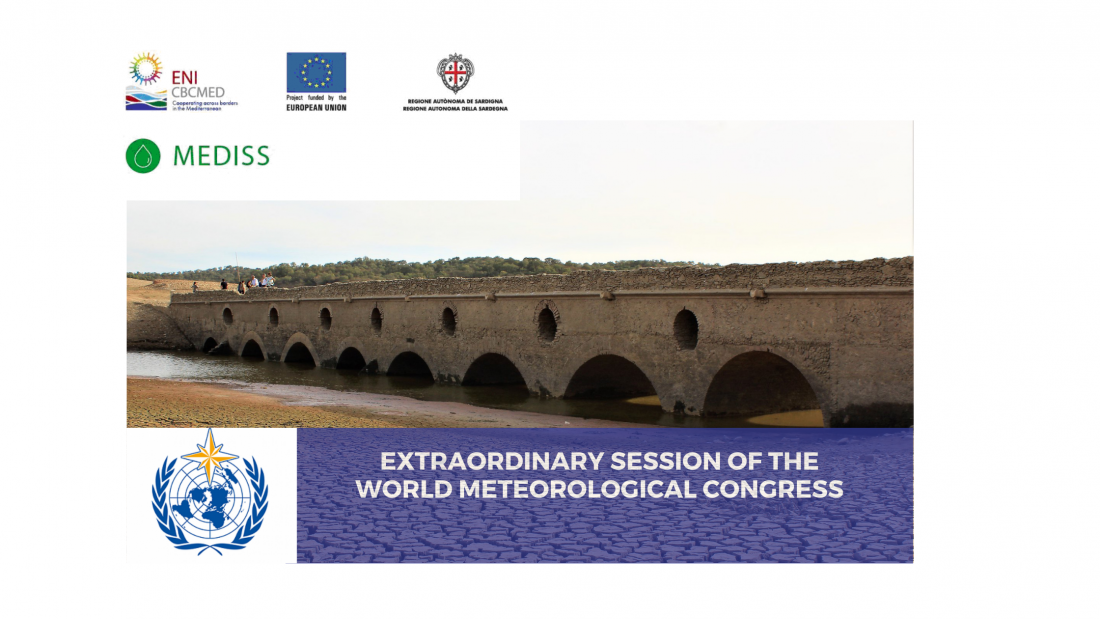[MEDISS] A new vision and strategy to face growing water stress and water-related hazards

MEDISS project adopted United Nations Sustainable Development Goals as the theoretical and practical framework during the indicators' selection process and data collection.
Moving away from a sectoral approach to water resources management, MEDISS partners are aware that only an integrated approach can cope with the complexity of water-related issues. To face such a challenge, SDG 6 provides a coherent framework including information on communities, ecosystem resources, water management and wastewater, water-related risks.
The Extraordinary World Meteorological Congress of the World Meteorological Organization was held online from 11 to 22 October 2021. The congress has endorsed a Water Declaration to accelerate the implementation of the sixth sustainable development goal and a new strategy for hydrology and related action plan.
During the two days assembly, the congress approved a Water Declaration, a Water and Climate Coalition, to accelerate the implementation of the sixth sustainable development goal, and approved a new vision and strategy for hydrology and an associated plan of action.
The priority of Water Declaration sets the following aspirations:
- That by 2030 early warnings for early action related to floods and droughts will be available for people everywhere on the planet to access;
- That policies for water and climate action developed within the sustainable development agenda be integrated to yield maximum benefit for our people;
- That we will pursue these goals through partnerships for capacity development, knowledge exchange and information sharing, formulating policies, institutional and legal/regulatory frameworks.
Furthermore, the Congress approved the Water and Climate Coalition that it will officially be presented at the United Nations Climate Change negotiations.
The aim of the coalition is “to promote the sharing and access to integrated hydrological, cryosphere, meteorological and climate information to plan and operate resilient and sustainable water resources systems at local, national, regional and river basin scales”.
Finally, an Hydrology Action Plan was presented, with its eight long term goals:
1. No one is surprised by a flood;
2. Everyone is prepared for drought;
3. Hydro-climate and meteorological data support the food security agenda;
4. High-quality data supports science;
5. Science provides a sound basis for operational hydrology;
6. We have a thorough knowledge of the water resources of our world;
7. Sustainable development is supported by hydrological information;
8. Water quality is known.
The Action Plan clearly summarize the existing relationships between ecosystems, communities and water resources that stand at the very foundation of MEDISS project idea.









